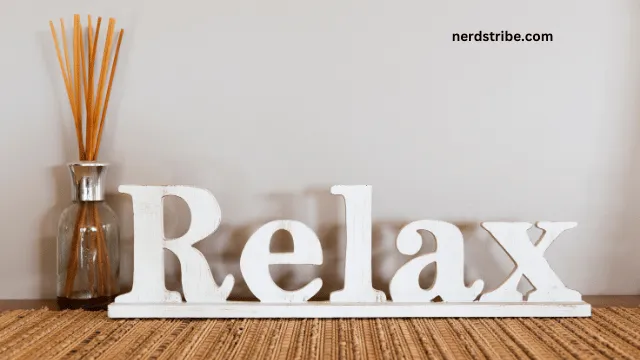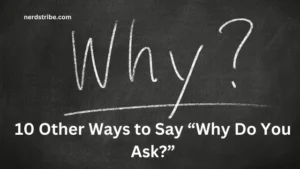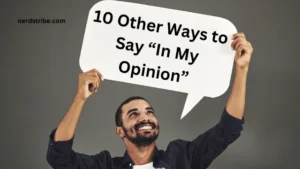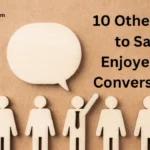In a world filled with constant noise, deadlines, and endless to-do lists, the phrase “sit back and relax” offers a comforting invitation to unwind. But sometimes, the same old phrase can feel repetitive.
Whether you’re crafting a casual message, writing an article, or having a conversation, diversifying the way you tell others to “relax” can help keep things fresh. It’s more than just about relaxation—it’s about embracing moments of calm, peace, and comfort.
Understanding how to communicate a sense of relaxation can transform how you engage with others. Using different expressions to encourage someone to unwind or take it easy adds variety to your language and gives you more ways to connect.
This can be especially useful in writing, where offering different ways to express the same sentiment can keep the audience interested.
In this post, we’ll explore 10 creative alternatives to saying “sit back and relax.” These phrases will not only enhance your language but also offer a variety of ways to communicate relaxation and restfulness, no matter the context. Let’s dive in!

Contents
1. “Take It Easy”
One of the most commonly used phrases, perfect for reminding someone to slow down and not stress.
- Example: “After a long day, just take it easy and enjoy your evening.”
- Why It Works: Casual and universally understood, it’s great for lightening the mood.
2. “Unwind and Enjoy”
Encouraging both relaxation and pleasure, this phrase combines comfort with enjoyment.
- Example: “Unwind and enjoy a good book tonight.”
- Why It Works: It invites both relaxation and an active choice to enjoy something you love.
3. “Kick Back”
A laid-back and informal alternative, perfect for when someone needs a break from their busy schedule.
- Example: “Kick back and watch your favorite movie this weekend.”
- Why It Works: It’s easygoing and perfect for informal situations with friends or family.
4. “Put Your Feet Up”
This phrase conjures the image of kicking back in a comfortable chair, signaling total relaxation.
- Example: “You’ve had a busy week—put your feet up and relax.”
- Why It Works: It’s a specific, comforting image that signals a moment of rest.
5. “Take a Breather”
Ideal when someone is overwhelmed and needs a short, refreshing break.
- Example: “You’ve been working hard—take a breather and come back refreshed.”
- Why It Works: It implies a brief yet rejuvenating pause.

6. “Chill Out”
A modern, colloquial phrase that conveys relaxation with a laid-back vibe.
- Example: “Why don’t you chill out for a bit and stop stressing over it?”
- Why It Works: Casual, cool, and often used to help someone ease their anxiety.
7. “Let Your Hair Down”
Inviting someone to relax and be free, this phrase suggests an escape from formality or stress.
- Example: “Tonight, let your hair down and enjoy the party.”
- Why It Works: It encourages freedom and release, particularly when socializing.
8. “Slow Down and Enjoy the Moment”
For those who need to take a step back and appreciate the present.
- Example: “Slow down and enjoy the moment, you’ve earned this time.”
- Why It Works: It encourages mindfulness and being present, which can improve mental well-being.
9. “Relax and Rejuvenate”
A phrase that focuses not only on relaxation but also on replenishing energy.
- Example: “Take the weekend to relax and rejuvenate before the new week starts.”
- Why It Works: It signals not just rest but also recovery and restoration.
10. “Ease into It”
Suggests a gradual, comfortable way of unwinding without rush.
- Example: “After your long drive, ease into it and take some time for yourself.”
- Why It Works: It implies a smooth transition into relaxation, which can be gentler on the mind and body.
Conclusion
There’s no one-size-fits-all way to express the need to relax. The 10 phrases we explored above each provide a unique tone, whether you’re aiming for casual, playful, or thoughtful encouragement. The goal is to convey that rest is important and that taking time for oneself is a form of self-care.
By incorporating these expressions into your daily conversations or writing, you can communicate a sense of peace in a way that suits any situation. Whether you’re speaking to a friend after a tough week, or crafting a message for a client in need of a break, these alternatives help maintain both the warmth and variety of your language.
Take time to relax—it’s not just about pausing your activities, but also about finding new ways to say “you deserve it.”
FAQs
When should I use these phrases?
You can use these phrases whenever someone needs encouragement to relax, whether it’s after a stressful period or when they simply need to unwind.
Are these phrases appropriate for formal settings?
Some of these phrases, like “relax and rejuvenate” or “slow down and enjoy the moment,” can work well in more formal contexts, while others like “chill out” are better for casual or informal settings.
Can I use these phrases in writing?
Yes! These alternatives can be integrated into personal notes, emails, articles, or blog posts to add variety to your language and convey relaxation effectively.
What’s the difference between “kick back” and “chill out”?
Both express relaxation, but “kick back” often suggests a more laid-back, carefree vibe, while “chill out” can imply a bit of calming down after stress or anxiety.
How do I choose the right phrase?
The context and relationship with the person matter. For a casual message, you might use “chill out” or “kick back,” while something like “relax and rejuvenate” could be better for a professional setting.
Can these phrases help reduce stress?
Yes! Encouraging someone to “take a breather” or “let their hair down” can be a reminder to slow down, helping to ease stress and promote relaxation.








